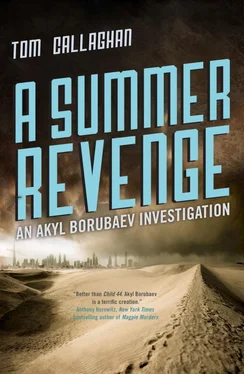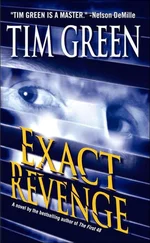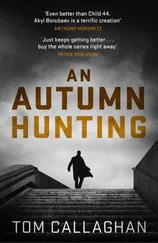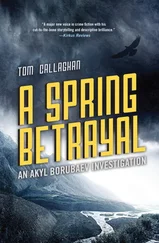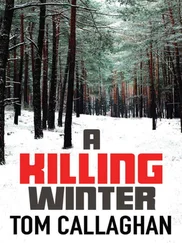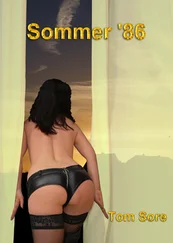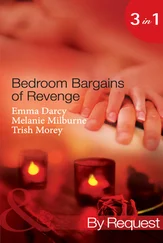The nearest Metro station was only a couple of minutes’ walk away, but I was already sweating when I stepped out of the Arctic lobby and into the sun. I squinted against the glare, told myself I should buy sunglasses, remembered how much they cost and decided to narrow my eyes instead. Make myself look tough, menacing, in case there were any more people I needed to hurt.
The Metro carriage was crowded, mainly with Filipina shop assistants in white blouses and black trouser suits, and the air was thick with their sing song voices, like the flocks of birds in Panfilov Park in the summer. The memory conjured up warm evenings sitting under the trees, eating ice cream, maybe drinking a Baltika beer and believing the world was a safe and eternally happy place.
I got off at Burjuman station, made my way up the escalators, heading for the exit, lost in sudden homesickness for Kyrgyzstan, hardly aware of the people around me.
And that was when I felt the gun in my back.
It’s impossible to turn quickly on a crowded escalator, so I simply stood still until we reached the top. I didn’t think I’d be able to push my way through the people in front of me fast enough to escape a bullet in the spine. Instead, I wondered just how painful being shot would be and whether it was better to die than to end up in a wheelchair.
I raised my arms just far enough away from my sides to show that I didn’t have any plans to reach for my gun, stepped off at the top of the escalator, walked slowly to the exit. Had the Chechens managed to track me down? Was this revenge for killing Khusun Todashev? Someone from Tynaliev showing me the price of failure? Or was the person who torched Kulayev the one with the gun in my back?
“Just there will do, Akyl. But no sudden moves.”
A voice I knew all too well.
Saltanat.
I turned round in slow motion. Saltanat was fast enough to pull the trigger before I could knock the gun aside, and a stray bullet wounding someone in a crowded station wasn’t the kind of attention I needed.
Saltanat looked as poised as ever, her hand with the gun back inside her bag, presumably finger ready to fire, happy to shoot through the material if that was how it had to go down.
“Couldn’t you have just tapped on my shoulder, like a normal person?” I asked. “We were due to meet here in half an hour anyway. Why the amateur dramatics?”
“Coffee first,” she said, “and then we can talk, and I can decide.”
“Decide what?” I asked.
“Remember when we first met?”
I could hardly forget. I’d ended up face down in the snow, expecting a bullet in the brain.
“I told you then that I wasn’t sure whether to kill you or not.”
I nodded. There didn’t seem to be a snappy reply to that.
“Well, now I’m not sure again.”
A smiling waitress took our order, and we sat in a booth away from the other customers. Saltanat sipped at her espresso while I stared moodily at a glass of black tea. I looked around for jam to sweeten it, but made do with sugar instead. The taste did nothing to lighten my mood. Time to ask the big question, the one that could wrap me in a shroud.
“Why would you want to kill me?”
I think I succeeded in not sounding plaintive or frightened, but sitting opposite a trained assassin doesn’t help anyone’s confidence.
“The woman I saw you with, the one with the udders? She’s the reason.”
I couldn’t help smiling, but stopped when I saw Saltanat frown.
“You’re not jealous, are you? It’s hardly as if you and I are girlfriend and boyfriend, bound together with undying love.”
“Akyl, you’re not a bad-looking man, for a Kyrgyz. And I seem to recall you weren’t bad in bed either. But you need a serious reality check if you think I’m crazy about you, or jealous of that plumped-up bitch.”
“Then what’s the problem?”
Saltanat caught the attention of the waitress, pointed to her empty cup. Unlike most people, caffeine seemed to relax Saltanat, but that’s maybe because she remained alert at all times, never letting her concentration slip or dimming her awareness of the people around her.
“The problem is that I think your friend is working with the Chechen terrorists I’m trying to stop. And if she’s working with them, then you might be working with her. Which means you’re on the side of the bad guys.”
“You think Natasha supports terrorism, that she wants to spread jihad through Central Asia? You’re crazy. The only things she’s passionate about are shoes, lipstick and hand-bags.”
I could have added ten million dollars belonging to the Minister for State Security to the list, but decided to keep that particular nugget of information to myself for the moment. I decided to try another tack.
“When I left you, it was because I’d got a text saying Natasha was being followed in the Dubai Mall. When I got there, she’d disappeared. I got into a gunfight, shot a young Chechen guy before he could shoot me.”
“Maybe you were being set up,” Saltanat said.
I shook my head, remembering the sight of Natasha being bundled into the black Prado.
“She was pushed into the same car that the people who shot at us used in their getaway. If someone had wanted me dead, all they had to do was wait until I turned up at the bookshop looking for her. If she was involved with them, she needn’t have even been there.”
My mouth suddenly dry, I took another sip of my tea, now lukewarm and unappealing. I had no way of predicting how Saltanat would react.
“Look, Natasha is the reason I came to Dubai. The minister wanted me to reason with her, persuade her to come back to him. He’s in love; it happens. Maybe she’s the woman he’s always wanted, maybe it’s just sex. I don’t know.”
Saltanat’s look of disbelief didn’t deter me.
“He’s promised to reinstate me if I bring her back. Being Murder Squad isn’t just a job for me, you know that. It’s what I do, it’s who I am.”
I didn’t need to add that after Chinara’s death it was all I had. And I knew that Saltanat could hear the passion in my voice. But she continued to look skeptical.
“If she’s so innocent and wide-eyed, why would the Chechens bother with her?”
“Maybe they want to put pressure on Tynaliev?” I suggested.
Saltanat shook her head. “Not these people,” she said. “They aren’t into subtlety. If they wanted something out of him, they’d leave his wife’s head on his doorstep. They don’t make threats; they act.”
She finished her coffee, waved for the bill.
“They’ve run a lot of risks so far here in Dubai. It would have been much easier, and safer, to put a bullet in her back, let Tynaliev find out about her death from the consul here.”
That was the Saltanat I knew, all heart.
Saltanat reached into her bag. I hoped she was just looking for money.
“She has something they want, and I think you know what that something is, Akyl. If you won’t—or can’t—tell me, then I don’t really think I can help you.”
I realized it was time I came clean or at least gave Saltanat some idea of what was going on. “Why don’t we go back to your hotel? I can explain more there.”
“I hope that’s not some line to get me back into bed with you,” Saltanat said.
We made the journey back to her hotel in silence, apart from Saltanat telling the driver to turn off the Arabic singing on the radio. The air conditioning did its best, but the heat was still oppressive, stifling.
I looked out of the window, and suddenly I was struck by how much I missed Kyrgyzstan—so much beauty crammed into so small a country. I remembered the long road from Bishkek to Osh, twisting and coiling back on itself as if a giant ribbon had fallen from the sky and draped itself across the mountains. Then there were the visits to Orlinoye, north of Karakol on the Kazakh border, to see family and to visit the people Chinara had grown up with.
Читать дальше
